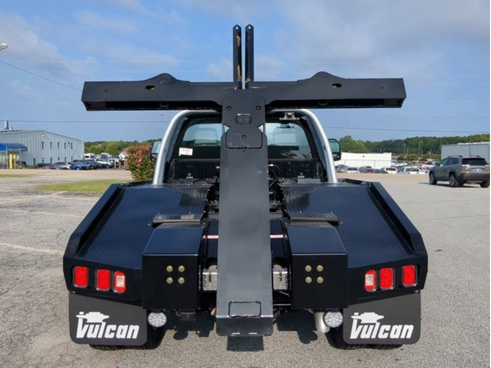Specialty Bodies
Akins Ford offers a variety of wrecker and rollback bodies. Ford's lineup features durable and reliable options, known for their towing capacity and performance. Whether you're in need of a heavy-duty wrecker to tow large vehicles or a rollback for transporting cars, Akins Autogroup has the equipment to meet your specific needs. Their expertise and wide selection ensure you'll find the perfect towing solution for your business.
Rollback Bodies
Rollback bodies are a specialized type of towing equipment designed to transport vehicles onto and off flatbed trailers. They are particularly useful for towing cars that are damaged or inoperable, as well as for transporting vehicles to and from repair shops, auctions, or dealerships.
Key Components and Features
- Bed: The main platform of the rollback body, which is typically made of steel or aluminum for durability and weight capacity.
- Winch: A powerful mechanism used to pull vehicles onto and off the bed. Winches can be either hydraulic or electric-powered.
- Hydraulic System: A system of pumps, valves, and cylinders that control the movement of the bed and winch.
- Decking: A non-slip surface that covers the bed to prevent vehicles from sliding during transport.
- Ramps: Folding ramps that extend from the bed to allow vehicles to drive onto or off the trailer.
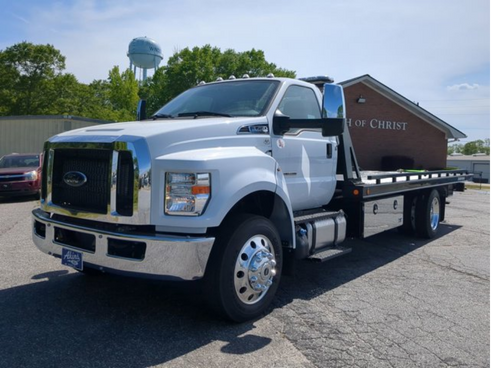
Types of Rollback Bodies
- Standard Rollback: The most common type, featuring a single-axle design and a fixed bed.
- Double-Axle Rollback: Provides increased stability and load capacity, often used for towing larger or heavier vehicles.
- Low-Profile Rollback: Designed with a lower bed height to facilitate loading and unloading of vehicles with low ground clearance.
- Hydraulic Tilt Rollback: Allows the bed to tilt for easier loading and unloading of vehicles with uneven ground clearance or damage.
Advantages of Rollback Bodies
- Versatility: Can be used to transport a wide range of vehicles, including cars, trucks, and motorcycles.
- Efficiency: Quick and easy loading and unloading process, reducing downtime.
- Safety: Securely transports vehicles, preventing damage during towing.
- Durability: Built to withstand heavy use and harsh conditions.
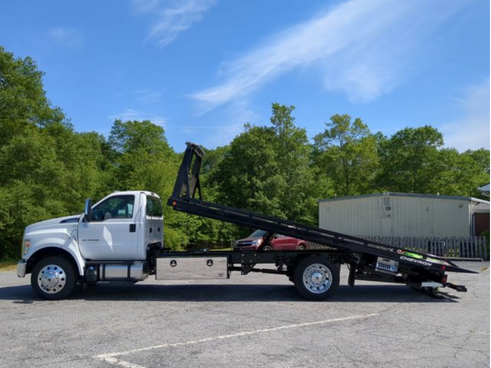
Wrecker Bodies
Wrecker bodies are specialized pieces of equipment designed to tow disabled or damaged vehicles. They come in various sizes and configurations, each suited for different towing needs.
Applications of Wrecker Bodies
- Roadside Assistance: Assisting drivers with disabled or damaged vehicles.
- Accident Recovery: Removing vehicles from accident scenes.
- Vehicle Transport: Transporting vehicles that cannot be driven.
- Law Enforcement: Assisting law enforcement agencies with vehicle impoundment and recovery.
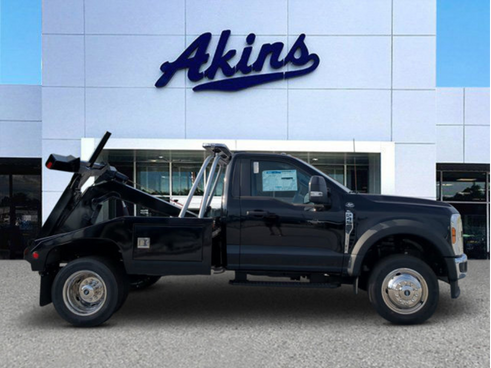
Types of Wercker Bodies
- Hook-and-Chain Wreckers: These are the most common type, featuring a large hook that attaches to the disabled vehicle's frame. A chain is then used to pull the vehicle onto the wrecker's bed.
- Underlift Wreckers: These wreckers lift the disabled vehicle from underneath using hydraulic arms. This method is often used for vehicles that are damaged or have flat tires.
- Rotator Wreckers: Equipped with a rotating boom, these wreckers can lift and turn vehicles, making them ideal for tight spaces or difficult recovery situations.
- Wheel Lift Wreckers: These wreckers lift the front or rear wheels of a disabled vehicle, allowing it to be towed without damaging the undercarriage.
Features of Wrecker Bodies
- Hydraulic Winches: Powerful winches are essential for pulling disabled vehicles onto the wrecker's bed.
- Hoisting Systems: Different types of hoisting systems, such as hydraulic cylinders or winches, are used to lift vehicles onto the wrecker's platform.
- Lighting and Safety Equipment: Wreckers must have adequate lighting and safety equipment to ensure visibility and operator safety.
- Towing Capacity: The towing capacity of a wrecker body depends on its size, weight, and the strength of its components.
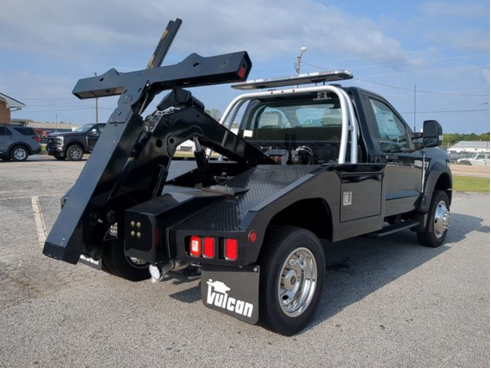
Choosing the Right Wrecker Body
The choice of wrecker body depends on the specific needs of the user. Factors to consider include the types of vehicles to be towed, the frequency of towing operations, and the operating environment.
